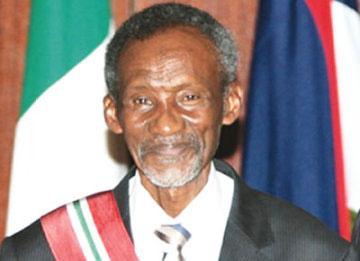
Justice Mahmud Mohammed
By Ikechukwu Nnochiri
ABUJA — The era when the activities of the judiciary were shrouded in secrecy is over, the Chief Justice of Nigeria, CJN, Justice Mahmud Mohammed, declared yesterday.
The CJN who stated this in a keynote address he delivered at the opening ceremony of a two-day training workshop for Abuja Chapter of the National Association of Judiciary Correspondents, NAJUC, yesterday, said there was need for the public to be properly informed about the nature and activities of the judiciary.
He stressed that the role the press had played in enthroning integrity, probity and transparency in the judiciary could neither be underestimated nor over-emphasised.
He said: “Gone are the days of acrimonious relationship between the judiciary and the press. In times past, the relationship between the judiciary and the press was not clearly delineated.
“What the judiciary had on the ground were only restrictive prescriptions for giving out information from the judiciary or the courts. This made the activities of the judiciary shrouded in secrecy and the public were not properly informed or educated about the nature and activities of the judiciary.
“The general belief was that all the activities of the judiciary started and ended in the court room. The scare of the dreaded subjudice or contempt of court hung ominously over every information or on the head of the information disseminator.
“The judiciary was a no-go area for the media by whatever means and the judiciary itself saw no use it could make of the press. The judiciary completely lived in its cocoon. Any prying eyes of the media into the affairs of the judiciary was treated as a satanic invasion or demonic intrusion that must be resisted and repelled by any means, especially by the use of the doctrine of contempt of court ex facie curie.
“However, the trend has changed. The judiciary as the third arm of the government treats the press as the fourth estate of realm. Since the judiciary as an arm of government is a subsystem within the state, it cannot, therefore, be insulated from the stimuli (both external and internal) which impact upon and influence the state as a system.”
The theme of the workshop which is holding at the National Judicial Institute, NJI, in Abuja is “Promoting Understanding between the Judiciary and the Press.”.
In her welcome address, the Administrator of the NJI, Justice R. P. I Bozimo, maintained that the training would assist the participants in discharging their duties “accurately and dextrously.”
She said: “The workshop may be seen as falling outside the mandate of the Institute under section 3 of the NJI Act, Cap N. 55 Law of the Federation of Nigeria, 2004 since the target participants are neither Judges of the Higher nor Lower Courts, nor their staff. However, on a very lucid and progressive consideration of the position and role of judiciary correspondents, one is left with only one conclusion- the judiciary correspondents though not directly employed by the judiciary, are performing the role of reporting the activities of the judiciary to the outside world and so could pass as a handmaid of the judiciary in information dissemination.
“Any deficiency on the part of the participants which occasions inaccurate reporting or improper understanding of the judicial proceedings, will damage the reputation and integrity of the judiciary”, she added.

Disclaimer
Comments expressed here do not reflect the opinions of Vanguard newspapers or any employee thereof.